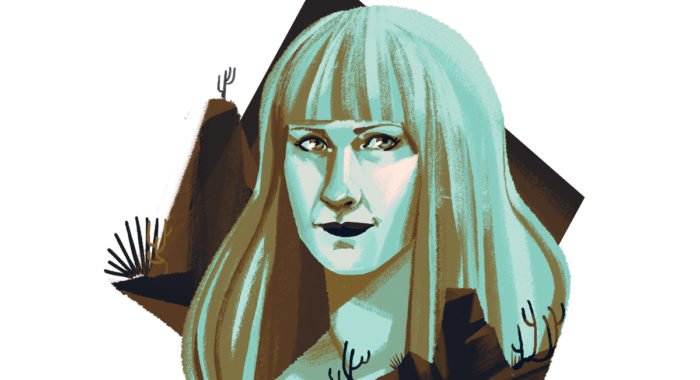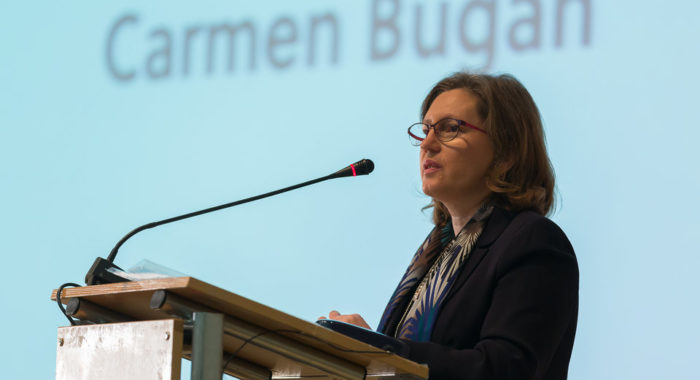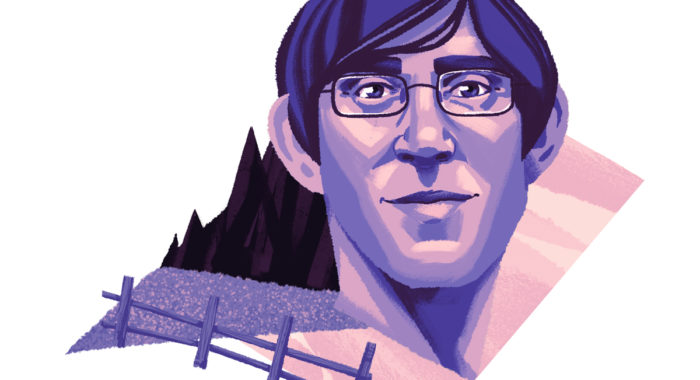Journalism wasn’t Jacqui Banaszynski’s first career choice. She had aspirations to be an athlete, but grew up before Title IX gave girls equal access to the field. She dreamed of being a commercial airline pilot or astronaut, but was handicapped by height and gender. She probably should have been an architect, but in her rural school district in the 1960s, girls weren’t allowed into shop class where she would have learned drafting. So she joined the high school newspaper staff, got the keys to the school car and went to find stories.
She spent the next 30 years as a reporter and editor for newspapers in the Upper Midwest and Pacific Northwest. She has filed stories from all seven continents, including Antarctica. She has covered beauty pageants and popes, AIDS and the Olympics, dogsled expeditions and refugee camps. She came of age in the modern women’s movement, covered some of its crucible events and benefited from the battles fought on behalf of women everywhere.
She won the 1988 Pulitzer Prize in feature writing for an intimate series on a gay farm couple dying of AIDS, and was a finalist for the 1986 Pulitzer Prize in international reporting for her on-the-ground coverage of the famine in sub-Saharan Africa. She now is a Knight Chair professor at the Missouri School of Journalism and an editing fellow at the Poynter Institute. She coaches reporters, writers and editors around the world.
Since she’s been coming to The Power of Storytelling, Jacqui told us stories, taught us about craft, gave us multiple tips on writing, but mostly she inspired us. We collected some of the things she taught us about the courage of telling stories:
• Ask the question. Simply because it’s important. “I think it’s important to keep asking the question, because in our world the questions are much more important than the answers.” But also because people want to share their stories. “Most people want to talk about their loved ones. They want a chance to be heard and to help you get it right. So don’t make that decision for people.”
• Don’t presume. Ask the questions even if you think they’re inappropriate. The people you need answers from might not share the same idea. They might even be glad they can finally tell that story. “The thing I learned about these kinds of questions is not to presume that people don’t want to talk about it. Not to presume that you’re protecting people by projecting your own discomfort. Not to presume that there are things too personal or too private to ask about. When I asked him about his last conversation with his wife, he responded in a very interesting way and I need to tell you that this was a man that did not want to be interviewed.”
• Be patient. Don’t expect your stories to peak the analytics numbers, to change systems or people the day they’ve been published, but trust them and be patient. They have a greater power. “Don’t let the stories get away. Let the stories touch you. Dare to believe that your stories, well told, will touch others. They’ll start as a small plunk, a little tiny drop in an eternal ocean, a second in endless time, they will ripple out, they will reach forward, they will reach backwards, they will connect us with our history, they will reach forward to help us create hope. Maybe they will change our understanding of something, maybe they will show us a new view, maybe they will challenge us about what we thought was true, maybe they will open our minds, maybe they will touch our souls, maybe they will change our hearts.”
So have the courage to wait for and trust a story, because “stories touch the world: you can’t measure them, there are no analytics, but if you watch and you wait, things happen.”
• Be creative. Keep your curiosity sparkling, and find new ways of finding stories, of telling and keeping them in the attention of your audience. Creativity is in the details: “Ask people to show you photos. An amazing thing happens when you ask to see a picture. People will tell you stories about what’s going on in the picture.” Or “choose details that don’t just describe, but that reveal. And to really look, look hard at what’s around you and see it, really see it, don’t just assume it.”
• Have compassion. And last, and probably one of the most desired traits for a human being, have compassion. “Our stories aren’t just part of a timeline, they’re part of human legacy. They are the things that connect generations, they connect geography, they connect culture, and they connect ethnicity and race. So care about the subjects of your story, care about the people who receive and hear those stories, and care about your own craft, care about what you do.”
In the end, it’s all about being human: “If you do any form of storytelling or communication for a living, whether you’re documentary filmmaker or a songwriter or a communications expert at a company, or a journalist, your job is not just to go through life, notice things, maybe let life happen to you. Your job is to see the story and share the story, because the story is the reflection of the continuum that we are and that we live as human beings.”
Register here for the 6th edition of The Power of Storytelling to be charmed and inspired by Jacqui once again.


